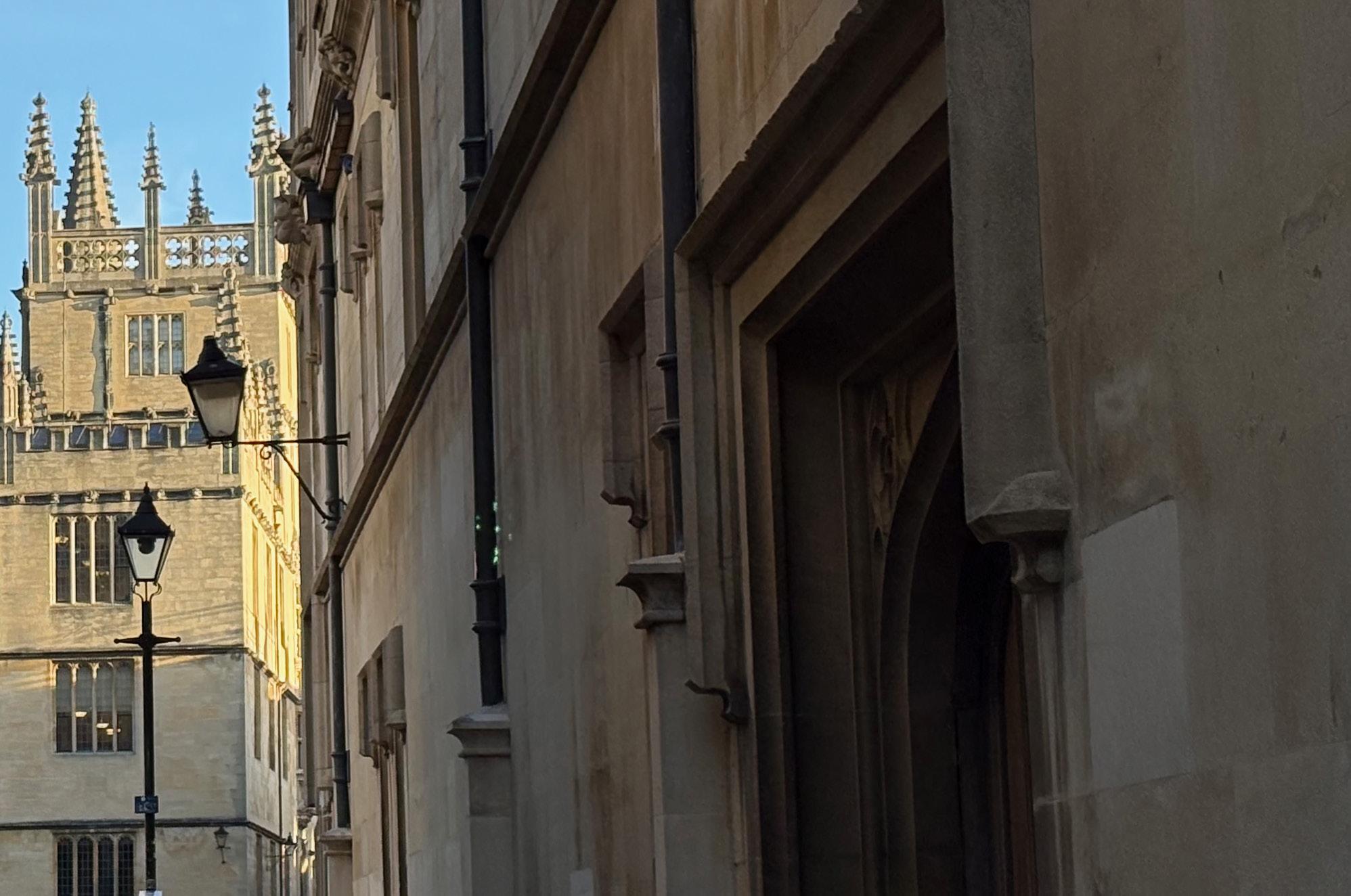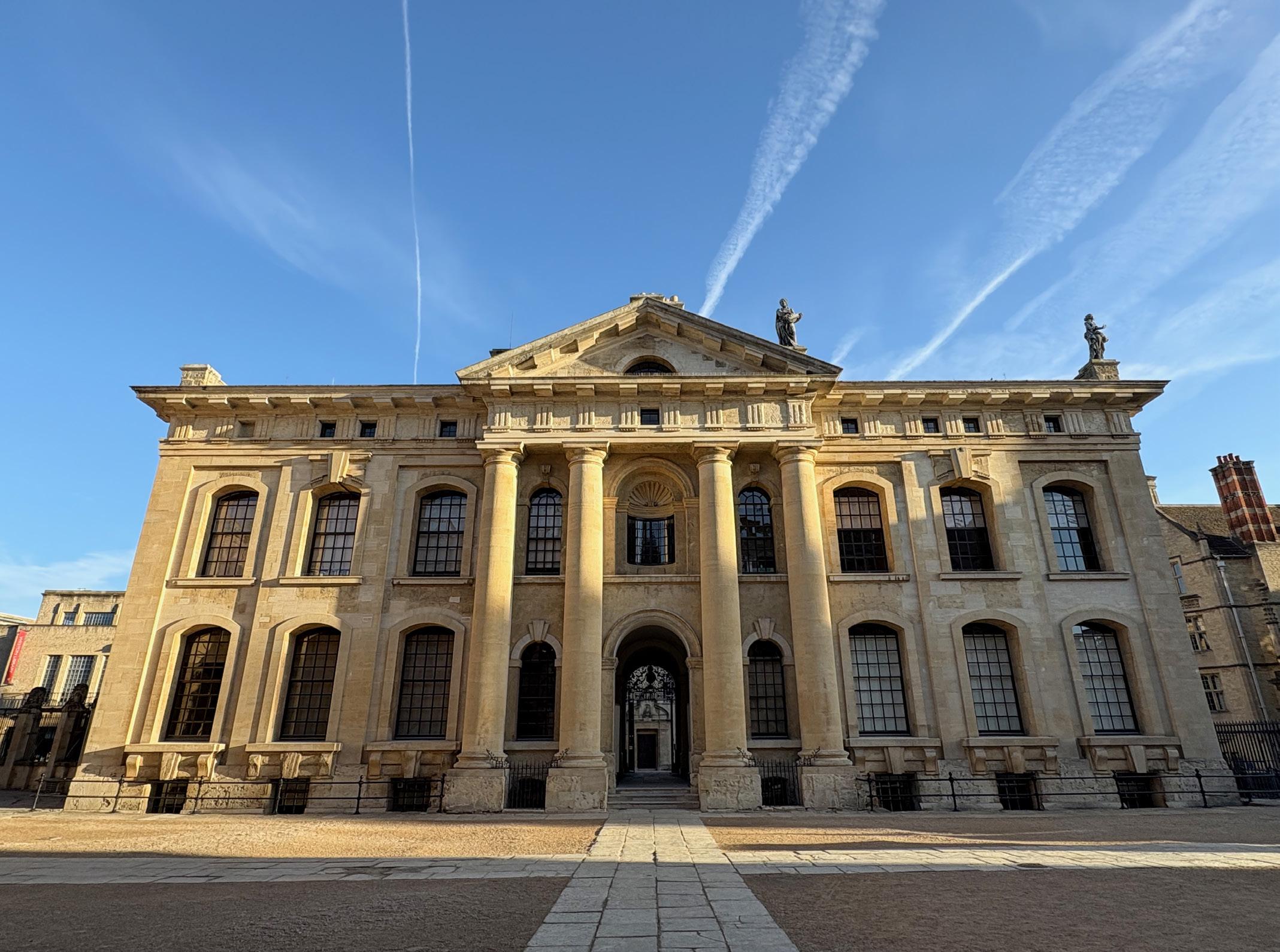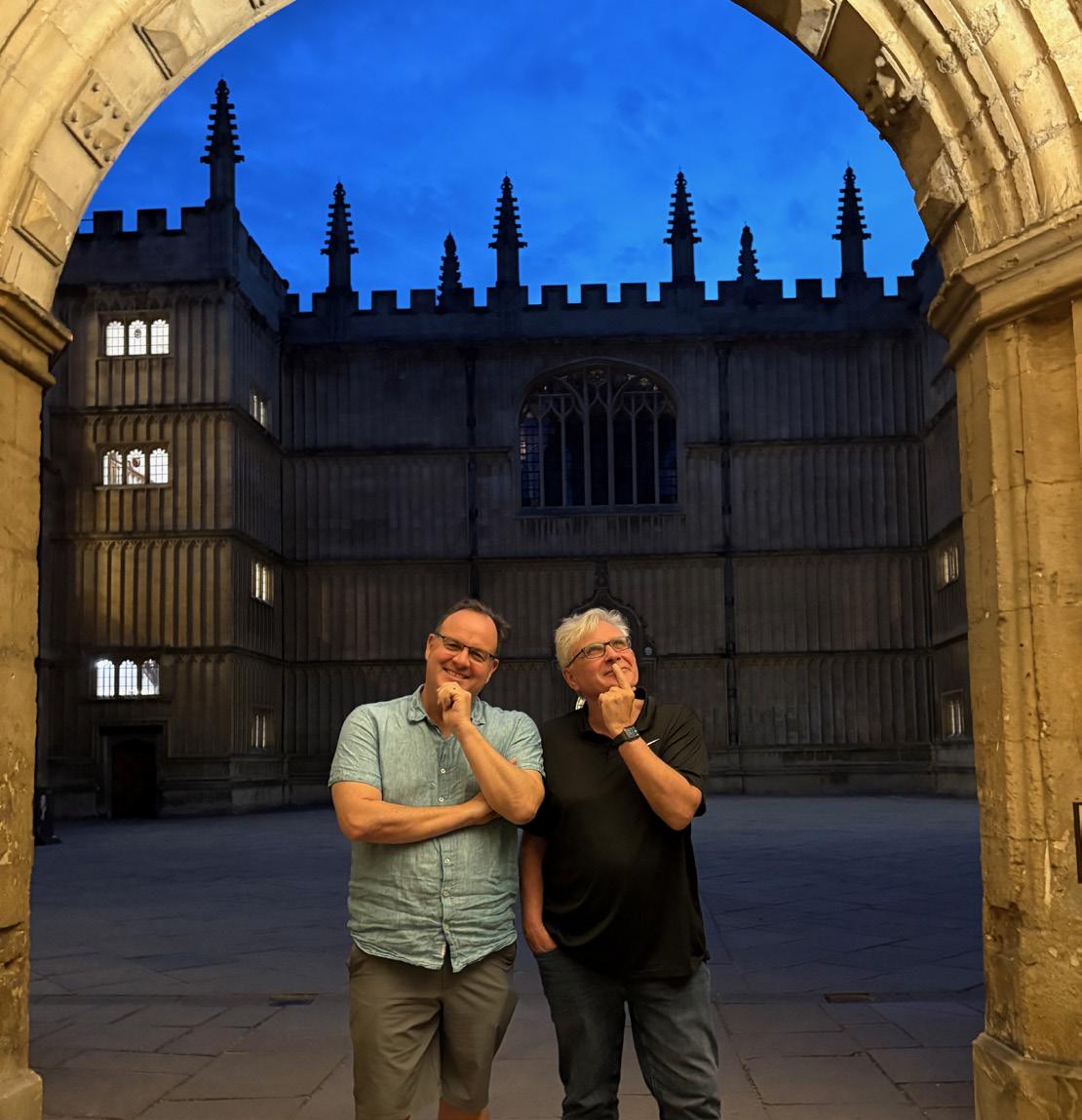
4 minute read
CERI's Strategic Travel to the U.K
We recently embarked on a strategic and inspiring trip to the U.K. with an intense journey that involved ten meetings with funders, philanthropists, scientific leaders, and businesses. The goal was clear: to strengthen CERI’s collaborations with key scientific groups in the U.K. and engage potential partners who can support our research, innovation, and training activities. We, i.e. Prof Wim de Villiers, Dr Richard Gordon and I, joined this trip, making it a powerful opportunity to advance our mission.
Our journey began in Cambridge, continued through London, and concluded in Oxford. In Cambridge, we had an excellent meeting with Prof Pietro Liò and his team at the University of Cambridge. Prof Liò, a full professor in the Department of Computer Science and Technology and a member of the Cambridge Centre for AI in Medicine, shares our passion for using AI to accelerate science. Together, we explored ways to expand our AI for Science program to include exchanges between our MSc and PhD students and Cambridge University. Cambridge colleagues already collaborate with Stellenbosch University and AIMS, and we are planning a significant program expansion starting in September 2026.
While in the U.K., we were also lucky to meet South African rugby legend Bob Skinstad, who captained the Springboks to a Rugby World Cup victory. Our discussion focused on potential collaboration with Elixrr, a U.K.based management consultancy firm that recently made strategic investments in Europe, including acquiring two AI/data science companies. Its founder, Stephen Newton, is a fellow Capetonian, and we are exploring how our team of AI scientists and postgraduate students could work with Elixrr on projects of mutual interest.
In London, our agenda included important visits to CEPI and Wellcome. CEPI is one of the largest global funders of biological countermeasure programs for priority pathogens. CERI has already worked with CEPI on the development of a vaccine for Rift Valley Fever Virus, one of Africa’s high-risk pathogens with pandemic potential. Prof Tulio de Oliveira has also been a keynote speaker at multiple high-level international events co-organised by CEPI, including the Global Pandemic Preparedness Summit 2024 in Rio de Janeiro and the upcoming G20 Health and Pandemic Preparedness Program in 2025 in Johannesburg.
Our meeting with Wellcome, one of the world’s most influential global health foundations — was equally exciting. We sat down with Prof Alex Pym, Director of Infectious Disease, and his team to discuss projects on climate-amplified diseases like dengue. CERI already holds several Wellcome grants, and we are actively working to expand this critical partnership.
The final and perhaps most intense part of the trip took place in Oxford, where we spent two full days deepening our collaboration with the University of Oxford’s Pandemic Sciences Institute (PSI). PSI was established to translate the hard lessons learned from COVID-19 into actionable strategies to prepare for and prevent future pandemics. Together with PSI and partners across academia, industry, and public health, we aim to accelerate science-driven innovations — from faster diagnostics and treatments to vaccines and digital tools for outbreak control — with a strong emphasis on equitable access for resource-limited regions.
In Oxford, we met with the PSI leadership and faculty, including Sir Peter Horby (Director), Prof Christophe Fraser, Prof Moritz Kraemer, Prof David Aanensen, Dr Julia Dickinson, David Bartle, Philippa Johnstone, and Dr Jane Itzhaki. We dedicated a full day to structured meetings, during which PSI researchers presented their work and we engaged in productive, forward-looking discussions. I also gave a presentation at the Big Data Institute, attended by nearly 100 faculty and researchers, sparking rich dialogue about potential collaborations between CERI and PSI. Plans are already underway to bring our British colleagues to Stellenbosch so that we can continue these conversations and transform ideas into action.
The trip concluded in London with a meeting with Google DeepMind, whose headquarters are nearby. Google DeepMind is already collaborating with CERI and AIMS through the AI for Science program, and we agreed to deepen this partnership. A Google team will visit CERI in late September as part of the G20 AI Program in South Africa, which will serve as a springboard for exploring even more ambitious joint projects.
In summary, our U.K. trip was demanding but deeply rewarding. Despite the full schedule and back-to-back high-level meetings, we returned energised, inspired, and more committed than ever to strengthening collaborations between CERI, Stellenbosch University, Cambridge and Oxford Universities, and our partners in industry and philanthropy across the U.K.












